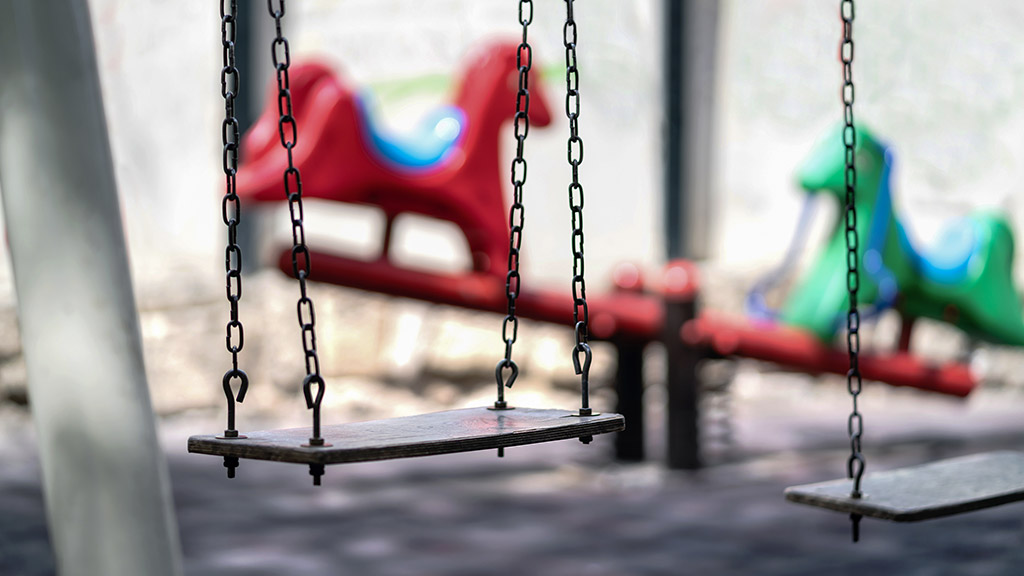Australian Institute of Family Studies. (2020). Mandatory reporting of child abuse and neglect. https://aifs.gov.au/cfca/publications/mandatory-reporting-child-abuse-and-neglect
If you require assistance or would like to talk to a trained professional about the issues described in this resource sheet, please call Kids Helpline on 1800 55 1800 or Lifeline on 13 11 14.
If you believe a child is in immediate danger, call Police on 000.
This resource sheet is provided as a guide only and is current at the date of publication.
Changes to mandatory reporting laws are currently being considered in various jurisdictions. Individuals are encouraged to contact the relevant department or organisation to clarify requirements in their jurisdiction or in relation to legislation. For more information and contact details, see the CFCA Resource Sheet Reporting child abuse and neglect: Information for service providers.

This resource sheet provides members of the community with information on mandatory reporting laws, which require specified people to report suspected abuse and neglect to government child protection services in Australia.1 It provides answers to common questions asked about mandatory reporting, outlines the challenges and benefits of mandatory reporting, and covers the various mandatory reporting legislation across all Australian jurisdictions.
There are legal requirements for various professionals to report other child-related conditions to various authorities (i.e., certain diseases, the occurrence of injuries in children attending schools or child care, and incidents of domestic violence related to adult victims). This resource sheet does not relate to those circumstances but is specific to the reporting of child abuse and neglect to government authorities.
Mandatory reporting laws aim to identify cases of child abuse and neglect and to assist the individual children in these cases (Royal Commission into Institutional Responses to Child Sexual Abuse, [Royal Commission], 2017). They were first developed in response to the largely hidden nature of child physical abuse and neglect, with the purpose of bringing cases to the attention of child welfare agencies (Mathews, 2014a). They require selected groups of people to report suspected cases of child abuse and neglect to government authorities.
In Australia, the first laws were introduced in South Australia in 1969, and these laws have since been introduced in all Australian jurisdictions (Mathews, 2014b). However, the laws are not the same across all jurisdictions. Differences exist in who has to report, what types of abuse and neglect have to be reported, the ‘state of mind’ that activates the reporting duty (i.e., having a concern, suspicion, or belief on reasonable grounds), and who the report is made to. These differences are described and discussed in this resource sheet.
Who Has to Report?
Mandatory reporting legislation generally contains lists of particular occupations that are mandated to report cases of suspected child abuse and neglect. The groups of people mandated to report range from persons in a limited number of occupations (Qld) to a more extensive list (Vic. and WA), to a very extensive list (ACT, NSW, SA, and Tas.), through to every adult (NT). The occupations most commonly named as mandated reporters are those who deal frequently with children in the course of their work: teachers, early childhood education and care practitioners, doctors, nurses, and police.
What Types of Abuse and Neglect Have to be Reported?
Differences exist in the types of abuse and neglect that must be reported. In some jurisdictions (e.g., NSW and NT), it is mandatory to report suspicions of all five recognized types of abuse and neglect (i.e., physical abuse, sexual abuse, emotional abuse, neglect, and exposure to family violence). In other jurisdictions, it is mandatory to report only some of the abuse types (e.g., WA, Qld, Vic., and ACT).
In most jurisdictions, the legislation generally specifies that, except for sexual abuse, only cases of significant abuse and neglect must be reported. As sexual abuse should always create a suspicion of significant harm, in practical terms, all suspicions of sexual abuse must be reported. While not required by the legislation, suspicions of less severe child abuse and neglect may still be referred to child and family welfare agencies.
It is important to note that the duty to report applies to suspicions that significant abuse or neglect is likely in the future, not just suspected cases of significant abuse or neglect that have already happened.
What Protections Are Given to Mandatory Reporters?
In all jurisdictions, the legislation protects the mandatory reporter’s identity from disclosure. In addition, the legislation provides that as long as the report is made in good faith, the reporter cannot be liable in any civil, criminal, or administrative proceedings.
How Does Mandatory Reporting Legislation Define a Child?
Legislation in all jurisdictions except New South Wales and Victoria requires mandatory reporting in relation to all young people up to the age of 18 years. In New South Wales, the duty only applies to situations involving children aged under 16 years. In Victoria, the duty only applies to situations involving children under 17 years of age.
How Does This Type of Mandatory Reporting Co-Exist With Other Types Of Reporting Laws?
This form of mandatory reporting is one of several different legal domains that require designated people to report specified types of child abuse. The reporting duties discussed here are located in child protection legislation in each jurisdiction. They are the major form of reporting duty—being primarily directed towards situations of multiple types of abuse and neglect by parents and caregivers (although, operationally, situations of non-familial sexual abuse will be subsumed under the reporting duty).
Accordingly, other types of reporting laws co-exist with the child protection reporting laws. These other laws appear most prominently in criminal laws and most often require reports of child sexual abuse, although they sometimes extend to serious physical abuse. These criminal law reporting duties do not exist in every jurisdiction, and where they do exist (e.g., in NSW, Vic., the ACT, and NT), they have slightly different scope and details, although all require reports to be made to police.
The criminal law reporting duties require all adults in the jurisdiction to report the specified type of abuse. Other types of reporting duty are aimed at identifying institutional sexual abuse. All these different duties are discussed in recent research (Mathews, 2019).
Which Mandated Reports Can Child Protection Services Act On?
A common assumption is that mandatory reporting requirements, the legislative grounds for child protection services intervention, and research classifications of abusive and neglectful behaviour are the same. In fact, mandatory reporting laws define the types of situations that must be reported to statutory child protection services. Legislative grounds for government intervention define the circumstances and, importantly, the threshold at which the statutory child protection service is legally able to intervene to protect a child. Researchers typically focus on defining behaviours and circumstances that can be categorized as abuse and neglect. These differences arise because each description serves a different purpose; the lack of commonality does not mean that the system is failing to work as policymakers had intended.
As such, not all reports of child abuse and neglect lead to immediate action from child protection services. A single report may not meet the threshold for intervention; however, this report, grouped with other information on file (or that is yet to be collected), may meet the threshold and result in action being taken. Reports are not looked at in isolation; instead, they work to form a body of information that determines if and how child protection services are legally able to intervene.
Can Voluntary Reports Be Made About Abuse and Neglect, Even If Not Required by The Legislation?
Any person is lawfully entitled to make a report if they are concerned for a child’s welfare, even if they are not required to do so as a mandatory reporter. Anyone making a voluntary (non-mandated) report is also protected with regard to confidentiality and immunity from legal liability as outlined above.
In addition to the mandatory reporting legislation, certain professional groups (such as psychologists) and government agencies (such as education departments) may have their own occupational reporting protocols outlining the moral, ethical, professional, or organizational responsibility to report. These policy-based reporting duties may be narrower, broader, or the same as those officially mandated under legislation. For example, in Queensland, teachers are required to report all forms of suspected significant abuse and neglect under school policy but are only mandated to report sexual abuse and physical abuse under the legislation.

The introduction of mandatory reporting increases awareness of child abuse and neglect, which can result in a substantial increase in the number of reports being made to child protection services, especially in the short term (Mathews, Lee & Norman, 2016). There needs to be adequate resources available to respond to any increased demand for staffing and services. Reporting trends generally stabilize several years after the introduction of a mandatory reporting duty (Mathews, Bromfield, Walsh, & Vimpani, 2015).
It is important that mandated reporters receive multidisciplinary training and accurate information to ensure that they know which cases they have to report, how to make a report containing the details needed by the child welfare agency intake team, and which cases they should not report. This training should occur both pre-service and in-service. Since non-mandated reporters make up a large proportion of all reports, it is also important for the public to be made aware of the appropriate extent of their responsibility. Additionally, it is essential that child and family support services be adequately resourced to respond to children and families in need of protection and assistance.
As a public policy, mandatory reporting aims to protect children from child abuse and neglect. Mathews and Bross (2008) argue that a society without a mandatory reporting system will be far less able to protect children and assist families, as many cases of child abuse and neglect will remain hidden. Comparative studies between countries with and without a mandatory reporting system have found that substantially more cases of child sexual abuse are identified in countries with a mandatory reporting system (Royal Commission, 2017). Studies in Australia support this finding (Lamond, 1989; Mathews, 2014a; Mathews, Bromfield, Walsh, Cheng, & Norman, 2017; Mathews et al., 2016). Reports by mandated reporters identify large proportions of maltreated children and result in the provision of services to many more children and families (Drake & Jonson-Reid, 2007).
Mandatory reporting also aims to increase awareness of child abuse and neglect among professionals who work with children and to overcome any reluctance to report this abuse (Cashmore, 2002). Mandatory reporting laws set acceptable standards of behavior for the community (Australian Law Reform Commission [ALRC], 2010), influence the policies and practices of child protection services (Tomison & Tucci, 1997), and make the protection of children from abuse and neglect a professional responsibility.

Commonwealth Legislation
The Family Law Act 1975 (Cth) creates a mandatory reporting duty for personnel from the Family Court of Australia, the Federal Circuit Court of Australia, the Family Court of Western Australia and other designated practitioners. This includes registrars, deputy registrars, family consultants, family counsellors, family dispute resolution practitioners, arbitrators, and lawyers independently representing children’s interests. Section 67ZA(1) and (2) require that when these persons have reasonable grounds for suspecting that a child has been abused, or is at risk of being abused, and this suspicion is developed in the course of performing their duties or functions, or exercising powers, they must, as soon as practicable, notify a prescribed child welfare authority of their suspicion and its basis.
Australian Capital Territory
The Australian Capital Territory’s mandatory reporting laws cover an extensive list of professions, and the details of the reporting requirements are provided in the table below.
| Legal provisions | Section 356 of the Children and Young People Act 2008 (ACT) |
|---|---|
| Who is mandated to report? | A person who is: a doctor; a dentist; a nurse; an enrolled nurse; a midwife; a psychologist; a teacher at a school; a person authorised to inspect education programs, materials or other records used for home education of a child or young person under the Education Act 2004; a police officer; a person employed to counsel children or young people at a school; a person caring for a child at a child care centre; a person coordinating or monitoring home-based care for a family day care scheme proprietor; a public servant who, in the course of employment as a public servant, works with, or provides services personally to children and young people or families; the public advocate; an official visitor; a minister of religion, religious leader or member of the clergy of a church or religious denomination; a person who, in the course of the person’s employment, has contact with or provides services to children, young people and their families and is prescribed by regulation. |
| What must be reported? | A belief, on reasonable grounds, that a child or young person has experienced or is experiencing sexual abuse or non-accidental physical injury; and the reasons for the belief arise from information obtained by the person during the course of, or because of, the person’s work (whether paid or unpaid) |
| Abuse and neglect types that must be reported |
|
New South Wales
New South Wales’ mandatory reporting laws cover an extensive list of professions, and the details of the reporting requirements are provided in the table below.
| Legal provisions | Sections 23 and 27 of the Children and Young Persons (Care and Protection) Act 1998 (NSW) | |
|---|---|---|
| Who is mandated to report? | A person who, in the course of his or her professional work, or other paid employment, delivers health care, welfare, education, children’s services, residential services or law enforcement, wholly or partly, to children. A person who holds a management position in an organisation, the duties of which include direct responsibility for, or direct supervision of, the provision of health care, welfare, education, children’s services, residential services or law enforcement, wholly or partly, to children. | |
| What must be reported? | Suspicion on reasonable grounds, obtained during the course of or from the person’s work, that a child is at risk of significant harm because of the presence to a significant extent of circumstances of: neglect, physical abuse, sexual abuse, psychological abuse, risk of harm through exposure to domestic violence, and failure to engage with services after a pre-natal report. | |
| Abuse and neglect types that must be reported |
|
|
Northern Territory
The Northern Territory’s mandatory reporting laws apply to any person, with additional provisions covering health practitioners. The details of these reporting requirements are provided in the table below.
| Legal provisions | Sections 15, 16 and 26 of the Care and Protection of Children Act 2007 (NT) |
|---|---|
| Who is mandated to report? | Any person |
| What must be reported? | A belief on reasonable grounds that a child has suffered or is likely to suffer harm or exploitation |
| Abuse and neglect types that must be reported |
|
Queensland
Queensland has three separate pieces of mandatory reporting legislation, each covering different occupational groups and having their own reporting requirements. The details of these pieces of legislation are provided in the table below.
| Legal provisions | Part 1AA, section 13F of the Child Protection Act 1999 (Qld) | Part 1AA, section 13E of the Child Protection Act 1999 (Qld) | Sections 364, 365, 365A, 366, 366A of the Education (General Provisions) Act 2006 (Qld) |
|---|---|---|---|
| Who is mandated to report? | An authorised officer, a public service employee employed in the department, a person employed in a departmental care service or licensed care service | Doctors; registered nurses; teachers; a police officer; a person engaged to perform a child advocate function; early childhood education and care professionals | School staff |
| What must be reported? | A reasonable suspicion that a child in care has suffered, is suffering, or is at unacceptable risk of suffering, significant harm caused by physical or sexual abuse | A reasonable suspicion that a child has suffered, is suffering or is at an unacceptable risk of suffering, significant harm caused by physical or sexual abuse; and may not have a parent able and willing to protect the child from the harm | Awareness or reasonable suspicion that a child has been or is likely to be sexually abused; and the suspicion is formed in the course of the person’s employment |
| Abuse and neglect types that must be reported |
|
|
|
South Australia
South Australia’s mandatory reporting laws cover an extensive list of professions, and the details of the reporting requirements are provided in the table below.
| Legal provisions | Sections 17, 18, 30 and 31 of the Children and Young People (Safety) Act 2017 (SA) |
|---|---|
| Who is mandated to report? | Medical practitioners; pharmacists; registered or enrolled nurses; dentists; psychologists; police officers; community corrections officers under the Correctional Services Act 1982; social workers; ministers of religion; employees of, or volunteers in, an organisation formed for religious or spiritual purposes; teachers; employees of, or volunteers in, an organisation that provides health, welfare, education, sporting or recreational, child care or residential services |
| What must be reported? | Reasonable grounds to suspect a child or young person is, or may be, at risk; and the suspicion was formed in the course of the person’s employment |
| Abuse and neglect types that must be reported |
|
Tasmania
Tasmania’s mandatory reporting laws cover an extensive list of professions, and the details of the reporting requirements are provided in the table below.
| Legal provisions | Sections 3, 4 and 14 of the Children, Young Persons and Their Families Act 1997 (Tas.) |
|---|---|
| Who is mandated to report? | Medical practitioners; registered or enrolled nurses; persons registered under the Health Practitioner Regulation National Law (Tasmania); police officers; probation officers; principals and teachers in any educational institution; persons who provide child care or a child care service for fee or reward; persons concerned in the management of an approved education and care service; a member of the clergy of any church or religious denomination; a member of the Parliament of this State; any other person who is employed or engaged as an employee for, of, or in, or who is a volunteer in, a government agency that provides health, welfare, education, child care or residential services; and any other person of a class determined by the Minister |
| What must be reported? | Knowledge, or a belief or suspicion on reasonable grounds that: a child has been or is being ‘abused’ or ‘neglected’ or is an affected child within the meaning of the Family Violence Act 2004; or there is a reasonable likelihood of a child being killed or abused or neglected by a person with whom the child resides; or while a woman is pregnant, that there is reasonable likelihood that after the birth of the child: the child will suffer abuse or neglect, or may be killed by a person with whom the child is likely to reside; or that the child will require medical treatment or other intervention as a result of the behaviour of the woman or another person with whom the woman resides or is likely to reside, before the birth of the child. |
| Abuse and neglect types that must be reported |
|
Victoria
Victoria’s mandatory reporting laws cover an extensive list of professions, and the details of the reporting requirements are provided in the table below.
| Legal provisions | Sections 182(1), 184 and 162(1)(c)-(d) of the Children, Youth and Families Act 2005 (Vic.) |
|---|---|
| Who is mandated to report? | Registered medical practitioners, nurses, midwives, teachers, principals of schools, police officers, persons in religious ministry, out-of-home care workers, early childhood workers, youth justice workers, registered psychologists |
| What must be reported? | Belief on reasonable grounds that a child is in need of protection on a ground referred to in section 162(1)(c) or 162(1)(d), formed in the course of practising his or her profession or carrying out the duties of his or her office, position or employment as soon as practicable after forming the belief and after each occasion on which he or she becomes aware of any further reasonable grounds for the belief |
| Abuse and neglect types that must be reported |
|
Western Australia
Western Australia has two separate pieces of mandatory reporting legislation, each covering different occupation groups and having their own reporting requirements. The details of these pieces of legislation are provided in the table below.
| Legal provisions | Sections 124A and 124B of the Children and Community Services Act 2004 (WA) | Sections 5 and 160 of the Family Court Act 1997 (WA) |
|---|---|---|
| Who is mandated to report? | Doctors, nurses and midwives, teachers and boarding supervisors, police officers | The Principal Registrar, a registrar or a deputy registrar; family counsellors; family consultants; family dispute resolution practitioners, arbitrators or legal practitioners independently representing the child’s interest |
| What must be reported? | Belief on reasonable grounds that child sexual abuse has occurred or is occurring, where this belief is formed in the course of the person’s work, whether paid or unpaid | Reasonable grounds for suspecting that a child has been abused or is at risk of being abused; ill-treated or is at risk of being ill-treated; or exposed or subjected to behaviour that psychologically harms the child |
| Abuse and neglect types that must be reported |
|
|
2 Note: The Western Australian Government has announced its intent for this Act to be amended to introduce mandatory reporting of child sexual abuse for ministers of religion, including where this knowledge is gained through religious confession. These amendments are yet to be enacted (Government of Western Australia, 2019).
Further Reading
Kohl, P., Jonson-Reid. M., & Drake, B. (2009). Time to leave substantiation behind: Findings from a national probability study. Child Maltreatment, 14(1), 17.
Mathews, B. (2012). Exploring the contested role of mandatory reporting laws in the identification of severe child abuse and neglect. In M. Freeman (Ed.), Current legal issues (Vol. 14: Law and Childhood Studies) (pp. 302-338). Oxford: Oxford University Press.
Mathews, B., & Kenny, M. (2008). Mandatory reporting legislation in the USA, Canada and Australia: A cross-jurisdictional review of key features, differences and issues. Child Maltreatment, 13, 50-63.
Mathews, B., & Walsh, K. (2014). Mandatory reporting laws. In A. Hayes & D. Higgins (Eds.), Families, policy and the law: Selected essays on contemporary issues for Australia (pp. 131-142). Melbourne: AIFS. Retrieved from www.aifs.gov.au/publications/families-policy-and-law/14-mandatory-reporting-laws
Melton, G. (2005). Mandated reporting: A policy without reason. Child Abuse & Neglect, 29, 9-18.
Tomison, A. (2002). Mandatory reporting: A question of theory versus practice. Developing Practice: The Child, Youth and Family Work Journal, 4, 13-17.
For more resources, visit the CFCA mandatory reporting bibliography.

